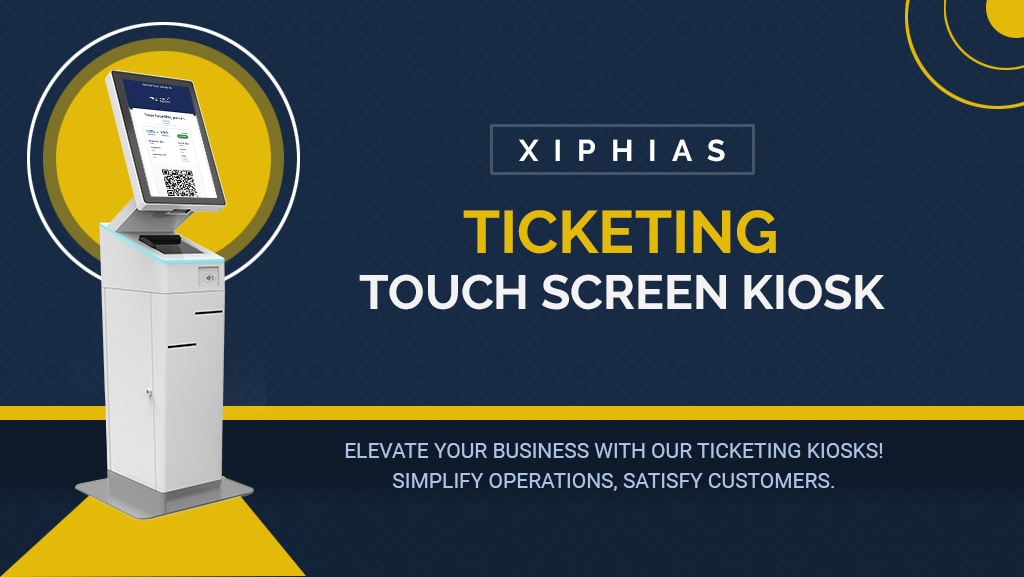How Ticketing Kiosks are Revolutionizing the Event Industry?
Efficiency and convenience are crucial in the quick-paced world of event management and ticketing. Long queues, paper tickets, and possible annoyances for both event organizers and attendees are common with traditional ticketing procedures. However, the introduction of ticketing kiosks has significantly changed the event sector. These self–service kiosks are improving the whole event experience, simplifying the ticketing process, and changing how events are run. This blog article will examine the different ways that ticketing kiosks are significantly changing the event sector and how they are modernizing it.
Eliminating Long Queues
The absence of lengthy lines is one of the most obvious advantages of ticketing kiosks in the event sector. These kiosks allow attendees to swiftly and easily buy their tickets, pick up previously ordered ones, or even make last-minute reservations. By cutting down on wait times, this not only enhances the experience of attendees but also gives them a favorable first impression of the event.
24/7 Accessibility
Ticketing kiosks provide round-the-clock access to event tickets. This accessibility allows potential attendees to purchase tickets at their convenience, whether it’s during regular business hours or late at night. It also caters to spontaneous decisions to attend an event, making it easier for people to participate in events they might have otherwise missed.
Improved Data Management
Traditional ticketing systems frequently need human data entry, which can result in mistakes and make precise attendance tracking difficult. Ticketing kiosks automate data administration and gathering, giving event planners access to up-to-the-minute information on ticket sales and attendance statistics. Better marketing and event planning are made possible by this data-driven methodology.
Enhanced Security
Security is a top priority in the event industry. Ticketing kiosks come equipped with robust security features to prevent fraud and unauthorized access. The use of barcodes, QR codes, or RFID technology on tickets ensures that only valid ticket holders gain entry to the event, reducing the risk of counterfeit tickets or unauthorized access.
Customization and Upselling
Ticketing kiosks offer opportunities for event organizers to customize ticket options and upsell additional services or merchandise. Attendees can choose from various ticket types (e.g., VIP, early bird, regular) and add-ons (e.g., parking passes, event merchandise) during the ticket purchase process. This not only enhances the attendee experience but also increases revenue for event organizers.
Reduced Staffing Costs
The deployment of ticketing kiosks can lead to significant cost savings for event organizers. With automated ticketing, fewer staff members are required for ticket sales and validation, allowing organizers to allocate resources to other aspects of event planning and execution. This cost-efficiency contributes to more profitable events.
Real-time Updates and Notifications
Ticketing kiosks can provide attendees with real-time updates and notifications regarding the event. This includes information on event schedules, changes in venue or timing, weather updates, and emergency notifications. Attendees can stay informed and prepared, resulting in a smoother event experience.
Sustainability
In an era of increasing environmental awareness, ticketing kiosks also contribute to sustainability efforts in the event industry. By reducing the need for printed tickets and physical paperwork, they help reduce paper waste and the carbon footprint associated with events. This eco-friendly approach aligns with the values of many event-goers and organizers.
Data Analytics and Insights
Ticketing kiosks collect valuable data on attendee preferences, purchase patterns, and demographics. Event organizers can leverage this data to gain insights into their audience and tailor future events to better meet attendee expectations. Data analytics help in making data-driven decisions that lead to more successful events.
Conclusion
Ticketing kiosks have ushered in a new era of convenience, efficiency, and data-driven decision-making in the event industry. By eliminating long queues, providing 24/7 accessibility, improving data management, enhancing security, and offering customization options, these kiosks have become indispensable tools for event organizers. They also reduce staffing costs, provide real-time updates, contribute to sustainability efforts, and offer valuable data analytics. As the event industry continues to evolve, ticketing kiosks are poised to play an even more significant role in shaping the future of events, ultimately benefiting both organizers and attendees. Their impact on the industry is undeniable, making events more accessible, efficient, and enjoyable for all.

